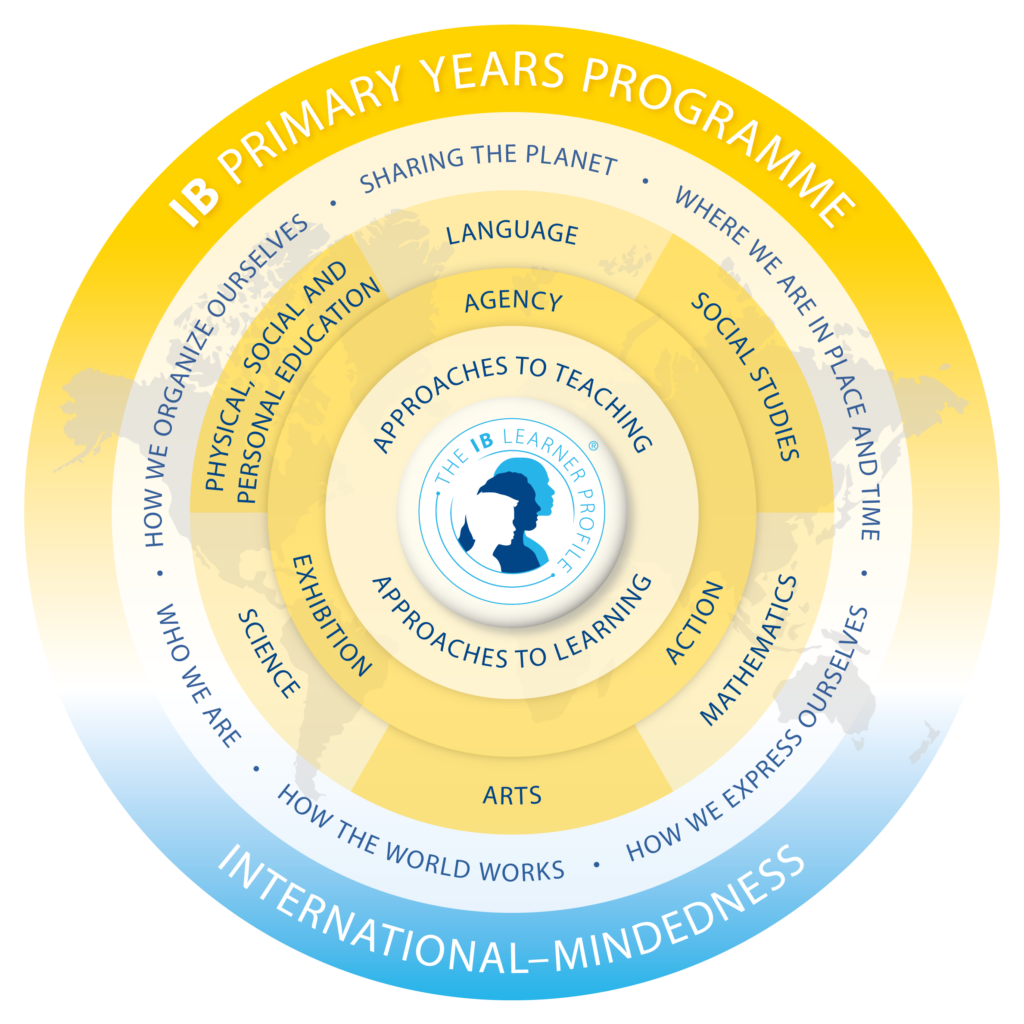IB programmes
Tartu International School is an IB World School and fully accredited by the International Baccalaureate to teach the Primary Years Programme (PYP). The school is working towards the implementation of the Middle Years Programme (MYP). The MYP is a highly flexible framework for students aged 11 to 16 that powerfully integrates with local educational requirements. More info about the MYP can be found here.

The PYP is designed for students aged 3 to 12. It focuses on the whole development of the child as an inquirer, both in the classroom and in the world outside. It is a framework guided by six transdisciplinary themes of global significance, with a powerful emphasis on inquiry. The PYP is flexible in accommodating the demands of most national or local curriculums.
The six subject areas identified within the IB PYP are: language; social studies; mathematics; arts; science; personal, social and physical education. All our PYP students start learning the host country’s language (Estonian) in the first grade. Students whose mother tongue is Estonian study it as a native language.

Learning takes place through six transdisciplinary themes that incorporate local and global issues into the curriculum and effectively allow students to “step up” beyond the confines of learning within subject areas.
- Who we are: An inquiry into identity as individuals and as part of a collective through: physical, emotional and spiritual health and well-being; relationships and belonging; learning and growing.
- Where we are in place and time: An inquiry into histories and orientation in place, space and time through: periods, events and artifacts; communities, heritage, culture and environment; natural and human drivers of movement, adaptation and transformation.
- How we express ourselves: An inquiry into the diversity of voice, perspectives, and expression through: inspiration, imagination, creativity; personal, social, and cultural notes and practices of communication; intentions, perceptions, interpretations, and responses.
- How the world works: An inquiry into the understandings of the world and phenomena through: patterns, cycles, systems; diverse practices, methods, and tools; discovery, design, innovation, possibilities, and impacts.
- How we organize ourselves: An inquiry into systems, structures, and networks through: interactions with and between social and ecological systems; approaches to livelihoods and trade practice – intended and unintended consequences; representation, collaboration, and decision-making.
- Sharing the planet: An inquiry into the interdependence of human and natural worlds through: rights, responsibilities, and dignity of all; pathways to just, peaceful, and reimagined futures; nature, complexity, coexistence, and wisdom.
IB Learner Profile

We encourage our students to be:
- Inquirers: We nurture our curiosity, developing skills for inquiry and research. We know how to learn independently and with others. We learn with enthusiasm and sustain our love of learning throughout life.
- Knowledgeable: We develop and use conceptual understanding, exploring knowledge across a range of disciplines. We engage with issues and ideas that have local and global significance.
- Thinkers: We use critical and creative thinking skills to analyse and take responsible action on complex problems. We exercise initiative in making reasoned, ethical decisions.
- Communicators: We express ourselves confidently and creatively in more than one language and in many ways. We collaborate effectively, listening carefully to the perspectives of other individuals and groups.
- Principled: We act with integrity and honesty, with a strong sense of fairness and justice, and with respect for the dignity and rights of people everywhere. We take responsibility for our actions and their consequences.
- Open-minded: We critically appreciate our own cultures and personal histories, as well as the values and traditions of others. We seek and evaluate a range of points of view, and we are willing to grow from the experience.
- Caring: We show empathy, compassion and respect. We have a commitment to service, and we act to make a positive difference in the lives of others and in the world around us.
- Risk-takers: We approach uncertainty with forethought and determination. We work independently and cooperatively to explore new ideas and innovative strategies. We are resourceful and resilient in the face of challenges and change.
- Balanced: We understand the importance of balancing different aspects of our lives – intellectual, physical and emotional – to achieve well-being for ourselves and others. We recognize our interdependence with other people and with the world in which we live.
- Reflective: We thoughtfully consider the world and our own ideas and experience. We work to understand our strengths and weaknesses in order to support our learning and personal development.



